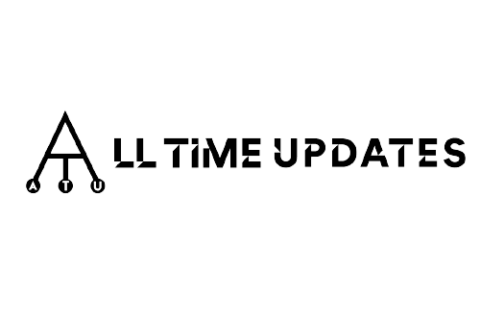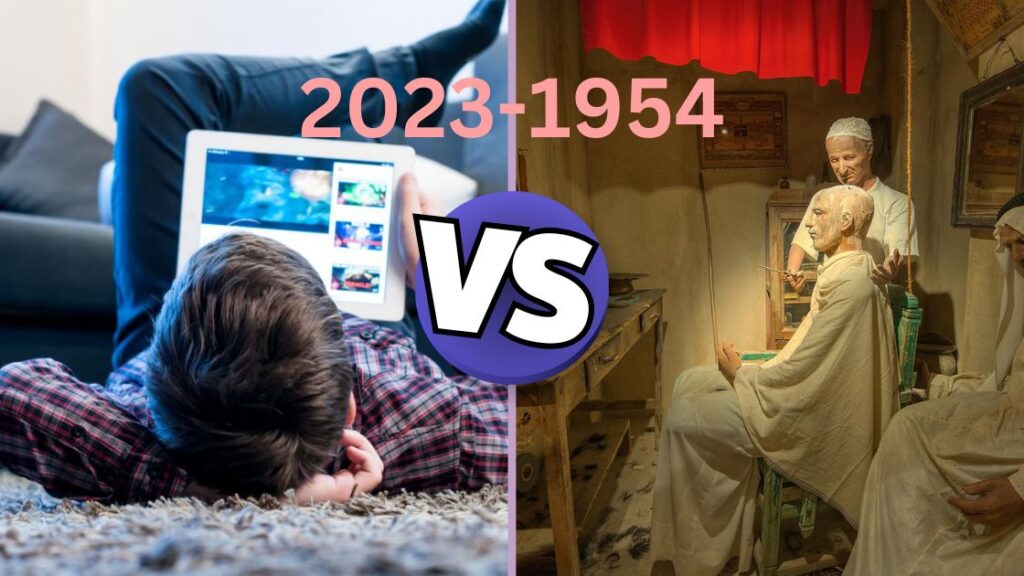From 2023-1954, everyday life underwent significant transitions that took the world from postwar simplicity into its present dynamic and interdependent global society. Technology advancement, evolving social norms, and shifting economic dynamics all play a pivotal role in how our lives unfold daily. These have profoundly affected us as individuals living our daily lives today. With television, our lives have been profoundly altered; its arrival, along with smartphones and the Internet, redefined our reality in ways once unimaginable. Technological advances, shifting workforces, and evolving social interactions have drastically transformed life today. Looking back seventy years, human innovation and adaptability have led to extraordinary progress and change.
Technology Revolution 2023-1954
From 2023 to 1954, society experienced a profound transformation due to the Digital Revolution. At its inception at the turn of the 20th century, technology was primitive, with television sets being considered novelty items and computers being as large as rooms for communication by landlines; but by 2023, digital connectivity has become ubiquitous via smartphones, internet browsing, and artificial intelligence technology; not only has information become more readily accessible but social interactions, work activities, and education have changed as a result of access to this online media.
Social media and its use have transformed relationships and news consumption; shoppers have experienced first-hand what e-commerce platforms mean for shoppers; remote working arrangements allow real-time collaboration across continents as well as automation of manual tasks in workplaces; students now access world-class resources online learning platforms regardless of location; technology has played an essential role as an efficiency, connectivity, and information resource, impacting both lifestyle choices and opportunities significantly since these advances in tech were first invented.
Work and Career 2023-1954
Since 1954, workplace conditions have undergone a dramatic transformation. When people worked exclusively at one company, their professional careers often followed a predictable course, reflecting postwar economic expansion and their desire for loyalty as an incentive reward mechanism. By 2023, however, that will all have changed dramatically.
2023 is an age of change for career landscapes, from technological innovations and gig economy disruption to freelancers, remote workers, and career pivots pursuing unconventional routes into work environments that promote autonomy while prioritizing balance in daily living habits. Furthermore, modern careers follow flexible lifestyles where flexibility, freedom, and balanced lifestyles are highly valued.
Teleworking, flexible hours, and project-based roles have become more widespread as organizations adapt to societal changes. Work and career priorities have shifted toward flexibility over stability in modern workplaces as more emphasis is put on quality of life over traditional measurements of success metrics.
2023-1954: Social and Family Dynamics
The cultural norms, values, and economic realities of mid-20th century societies marked dramatic changes in family dynamics between 2023 and 1954. It was traditional for male breadwinners to provide income for families. That time’s social and economic realities also supported women’s homemaking duties.
The family dynamic has changed significantly by 2023. Changed attitudes surrounding marriage, gender roles, and parenting have resulted in new family structures due to individual fulfillment becoming an ever more significant priority.
Women and men share in earning income and managing household tasks, reflecting how women have increasingly entered the labor force and dual-income families are becoming increasingly common in contemporary relationships and family lives characterized by equality, flexibility, and inclusivity. These changes reflect 21st-century life demands characterized by equality, flexibility, and inclusivity that require these types of roles for all partners involved in relationships or families to live fulfilling lives together.
Health and Wellness
Over the period 2023-1954, healthcare has undergone dramatic shifts. Focus has shifted away from treating illness towards providing holistic healthcare; acute conditions and infectious diseases were more commonly addressed, while less emphasis was placed on preventative medicine or mental well-being.
Wellness today encompasses an expansive array of practices designed to increase physical, mental, and emotional well-being. Exercise and diet alone cannot achieve overall well-being – stress management and resilience also play a part. Yoga meditation mindfulness practices have seen tremendous popularity within wellness culture and increased understanding of nutrition’s role in chronic disease prevention.
Mental health issues have become less stigmatizing as both physical and psychological well-being are acknowledged. At the same time, technology enables apps providing health information, telemedicine services, and personalized wellness programs, reflecting this shift from individualism towards holistic well-being.
Consumerism and Sustainability
An increase in environmental and social awareness led to a dramatic shift in consumer spending from 2023-2054. At its height during the 1950s, driven by economic prosperity and technological advances, throwaway culture reached fever pitch without regard for environmental consequences. By 2023, however, consumers increasingly favor environmentally friendly, ethically produced, sustainable manufactured products over their disposable ones. This fact is recognized by environmentalists who observe how consumers’ consumption habits can directly impact global environments. From cutting back waste and adopting circular economy practices to increasing environmental friendliness through consumer and consumer initiatives, businesses are adopting sustainable business practices to combat environmental degradation and create a greener world. A collective sustainable consumer movement represents our collaborative effort to pursue ecological preservation and create an eco-friendlier society.
Entertainment and Leisure
In 2023-1954, entertainment and leisure were predominantly passive but are now highly engaging. The 1950s offered limited choice or audience involvement in entertainment through traditional forms such as radio and black-and-white TV. Audiences would choose content directly from content producers. Entertainment has completely changed in 2023. Entertainment has been completely revolutionized by the Internet, digital streaming platforms, and interactive technology. Consumers now enjoy an unprecedented selection of entertainment choices when it comes to media consumption; everything from streaming movies and television shows, playing video games, experiencing virtual reality headsets, or experiencing VR is available through interactive media consumption, which provides targeted, always-on media consumption that makes for engaging media consumption experiences. Platforms and tools for content creation have further democratized entertainment by allowing anyone to produce content, blurring the line between audience and creator, and further expanding consumer preferences. Technological advancements and consumer demands for more dynamic entertainment options have led to this transition.
Education: From the Classroom to Lifelong Learning
Lifelong learning has revolutionized education since 2023-1954, moving away from classroom-based models. The view that education ends at adulthood was standard before 2054. As technology advances and global economic demands change, continuous education and skill enhancement are more essential than ever. By removing geographical and age barriers, modern educational platforms, online courses, and digital resources have made learning accessible to more people. A societal shift from prioritizing knowledge development during one’s lifetime is signaled by this paradigm shift emphasizing the importance of ongoing education to adapt, innovate, and thrive.
Conclusion
A dynamic economic landscape, technological progress, and shifting social values made lifestyle changes drastic from 2023 to 1954. Work environments have become more flexible in recent decades, social and family relationships have changed, health and wellness practices have become more holistic, consumption has become more sustainable, and interactive education content geared toward lifelong learning has exploded. The changes reflect societal priorities shifting towards individual fulfillment, environmental responsibility, and ongoing adaptation. We should learn from this evolution as we prepare for the future: welcome change while seeking balance and building resilience.

